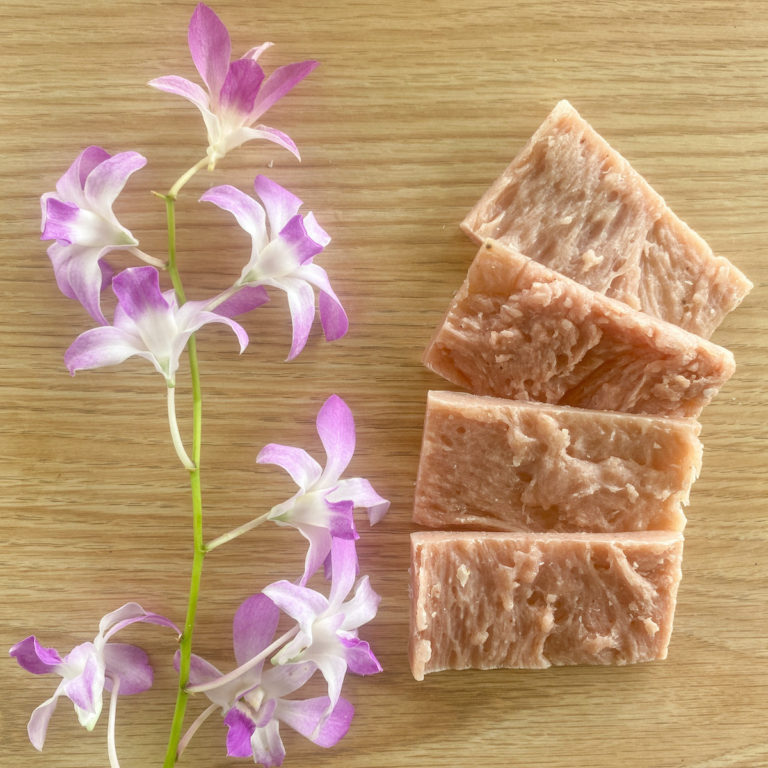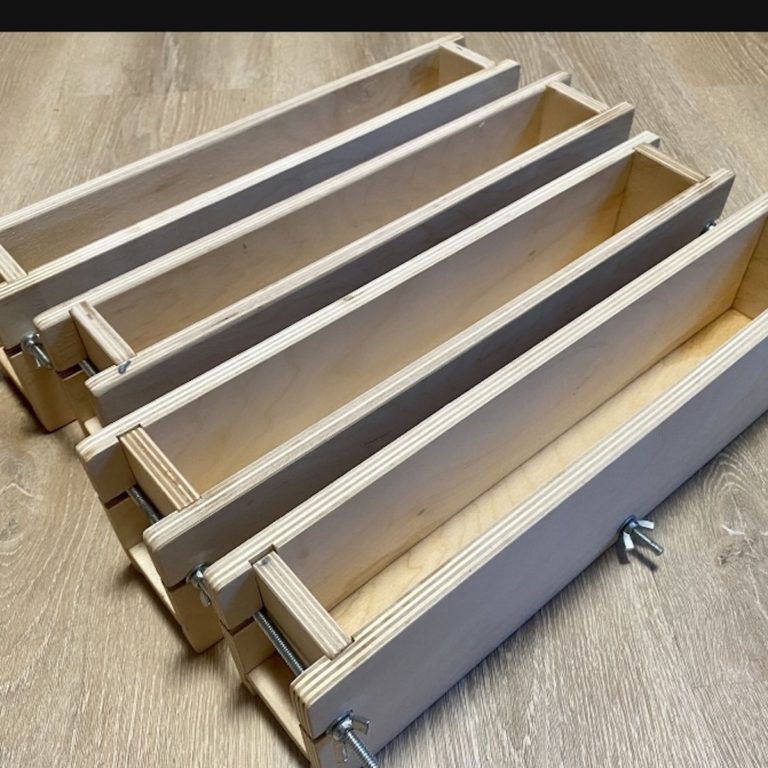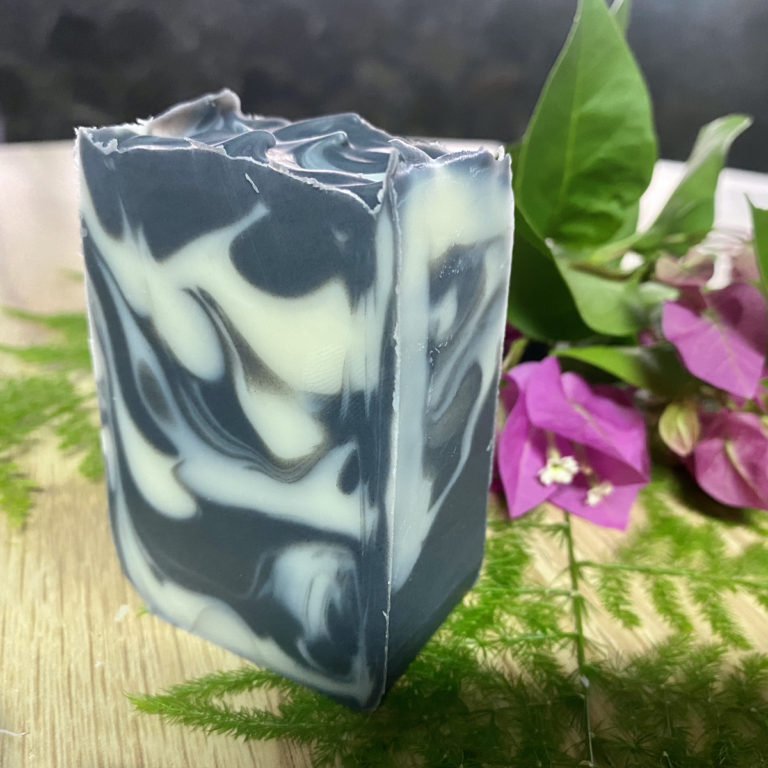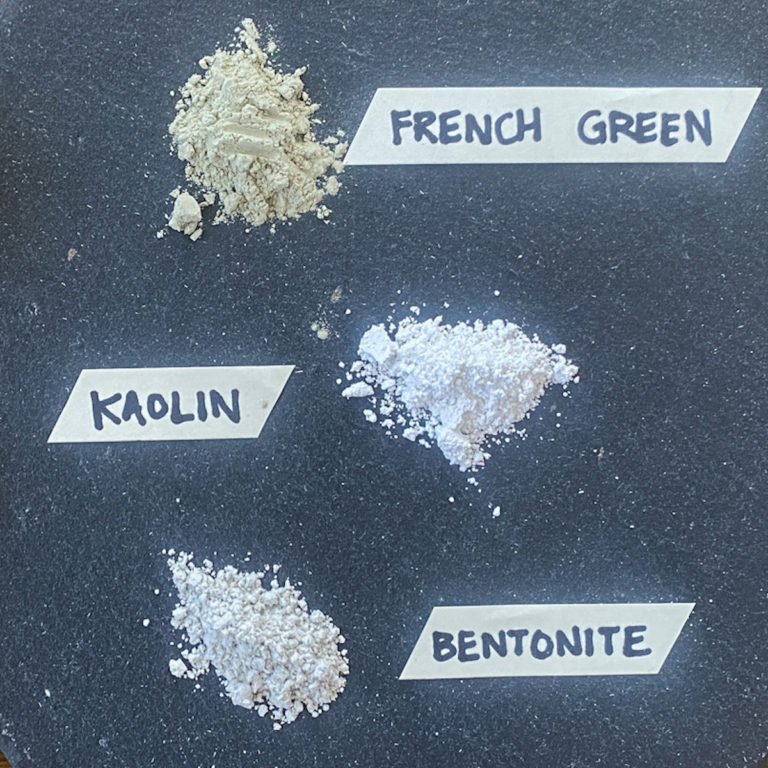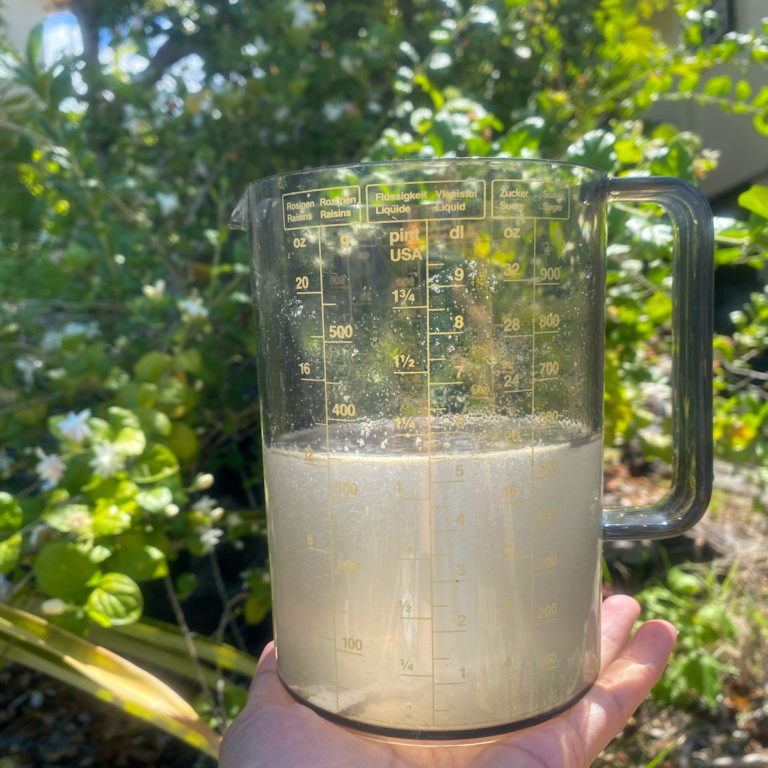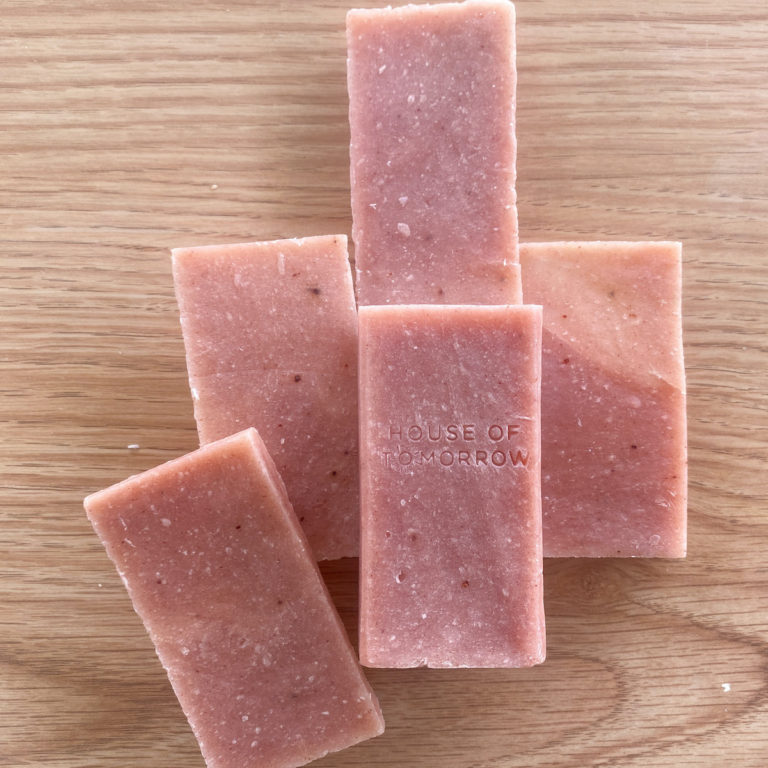Handmade Soap Sweating In High Humidity – Solutions For Soap Makers
Being able to make soap yourself is amazing in so many ways, but one not so special and magical thing is that it sweats sometimes. If you have trouble with your handmade soap sweating in high humidity, know that you’re not alone.
True soap contains glycerin, not as an ingredient that you add to it, but as a natural result of the saponification process. Glycerin is part of what makes handmade soap feel so much better than the detergent based bars you usually find for cheap at the store.
As a humectant, glycerin draws moisture from the air. Your skin loves this. But this same quality that helps skin so much can also affect the aesthetics of soap. When it’s humid, beads of moisture can form on your bars, as water from the air is being drawn to the glycerin in the soap.
During the rainy season this can be a problem where I live. I did a ton of research on what to do about this and found there are people all over the world who have struggled with this same issue.
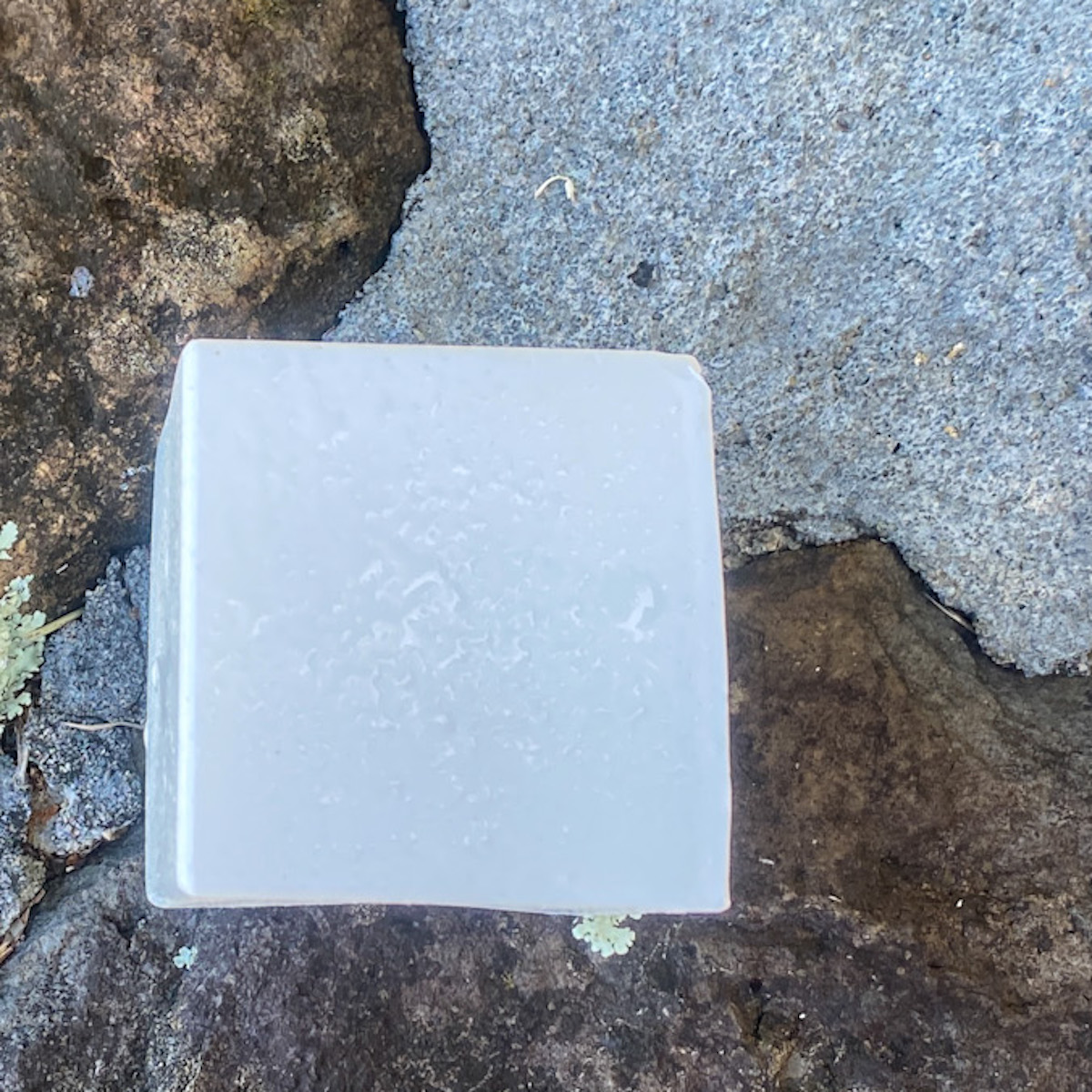
Some solutions people are turning to for soap sweating in high humidity:
- Run a dehumidifier or air conditioner in the room your soap is stored in
- pros: time effective, helps to create a nice hard bar
- cons: can be expensive, uses more electricity/resources, can be a large upfront investment
- After soap has completely cured, shrink wrap it. If doing this I strongly encourage you to use biolefin instead of normal shrink wrap, as biolefin can break down into biomass within 1-5 years.
- pros: professional looking, allows you to see soap designs, can wrap many bars of soap quickly
- cons: expensive, a bigger upfront investment than other packaging options
- Wrapping soap first with a protective layer like soywax paper, then in another layer like a small paper bag
- pros: all materials used in packaging can break down / biodegrade quickly
- cons: cannot see soap design, usually this style of packaging means soap cannot stand upright
- Storing soap in heavy paper bags or boxes which minimizes the amount of air that can get to it
- Running a fan over soaps
- Packaging individual soaps in paper boxes (not the kind with an open window which would allow moisture in)
- Wrapping soap in cellophane
- pros: breaks down in 3-4 months if its true cellophane and not a plastic imitatory
- cons: crinkly noise, becomes creased looking and less “fresh” over time
Alternatively, you can just let soap be. It will sweat, yes, but that doesn’t affect the quality of your soap.
If you wholesale your soap to stores, your soaps are most likely going to be sitting in A/C all day long, so the customer won’t see any sweaty soap in the shop.
If you do outdoor craft fairs, farmers’ markets and the like, be prepared for the weather. Maybe you want to use just a cigar band on days where the humidity is low, but then change up your packaging to boxes (which are pricier and consume more resources) on days that you’re expecting high humidity.
Some things that my research and experience has indicated does NOT work to prevent soap sweating:
- Wrapping soap in a single layer of wax paper
- Packaging soap in individual boxes that have windows or openings of any sort
- Wrapping soap in any sort of light paper

